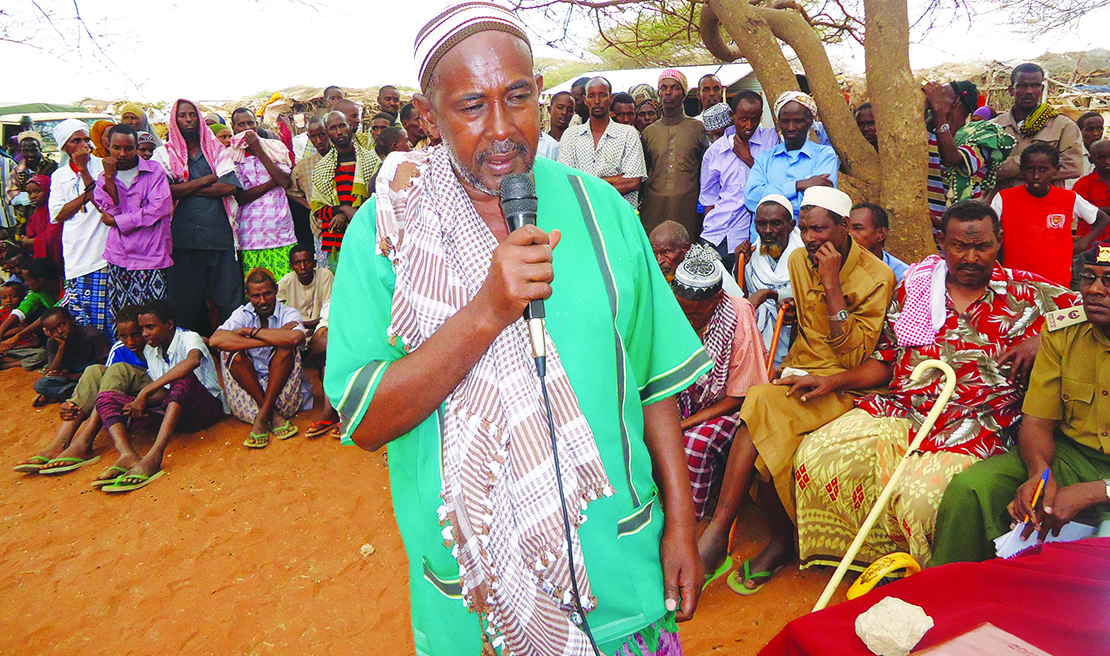By Abduljabar I. Hussein
Amicable settlement or Conciliation and peacemaking, is the practice that predated modern justice system.
Within the framework of African society, Chieftain (Tribal leader), Healers ( Waganga), Sooth sayers (Wapiga ramli) and influential noble men as mediators or arbitrators in all disputes within the family or between two rival tribes.
The sole objective of these third parties was promotion of peace and the maintenance of a semblance of order when two disputants couldn’t agree on a resolution of their own.
The negotiators and mediators were those who attempted to reconcile the disputants and negotiate a settlement between the disputants amicably.
Islam encourages disputants in conflict to resolve the dispute through amicable solution, as litigation not always result in decision accepted by both parties.
In a nutshell Sulh is settlement guided upon compromise negotiated by the disputant themselves or with the help of a third party.
It may now be compulsory to try Sulh in family dispute before Kadhis’ Court, under the proposed rules of procedure and practice in the Kadhis’ Court 2015, before an application proceeds for full trial.
Under Order 19 Rule 1, the new law requires the Courts to refer parties for Sulh if there is reasonable possibility of a settlement and that the Court will fix the date for the trial of the action after three months from the date of filing the suit to afford parties sufficient time for settlement out of Court.
Some people may be reluctant to attend /appear on the date fixed for Sulh, such , as they may not wish to see the other party or perhaps they are concerned about being forced into agreeing to something which they don’t wish to agree, to, such nonappearance shall be treated as contempt by the Court.
In event were both parties reached an agreement to settled the matter totally or partially the parties will proceed under Order 19 Rule 4 which provides;
Where parties have reached an agreement to settle the action, whether wholly or in part, the Chairman shall prepare a letter of consent and submit it to the parties for their confirmation and signature and , thereafter the chairman shall transmit such letter and make the parties to appear before the court to be recorded as a judgment by confession or consent , as the case may be under Order 24 rule 2.
Failure to settling the dispute by the Sulh Committee will result in the parties proceeding Under Order 19 Rule 5 of the same rule, which provides;
Where the Majlis is unable to resolve the dispute concerning the subject matter of the Sulh to the satisfaction of both parties, the chairman shall prepare a report to that effect to the trial Court and may append to such report any note and make such recommendation as he think fit regarding the action.
The Prophet Muhammad (SAW) was said to have encouraged compromise and to have mediated both public disputes, such as those between fighting clan members, and private ones, including those between his Companions and their creditors. Further, a well-known hadith of the Prophet warns:
“You bring me lawsuits to decide, and perhaps one of you is more skilled in presenting his plea than the other and so I judge in his favor according to what I hear. He to whom I give in judgment something that is his brother’s right, let him not take it, for I but give him a piece of the Fire.”
Thus, the trial process is not regarded as an ultimate truth-finding mechanism that will lead to substantive justice. It can be tainted and subverted by the imperfect nature of man. A report in the Musannaf of al-San’an attributed to ‘Umar ibn al-Khattab, the second caliph of Islam, is unequivocally critical of adjudication:
“Dispel the disputants until they settle amicably with one another (yastalatu); for truly adjudication leads to rancor.”
It is preferable to reconcile and settle disputes through Sulh to maintain the ties of family, brotherhood, and community.
In addition, Sulh is also an option available to a Kadhi when a case is brought to his attention. The potential outcome could be very different for the parties involved than if the judge proceeded with trial.
The Kadhi is endowed with multiple roles within a largely inquisitorial justice system, and the roles of mediator and conciliator are included amongst them. Ibn Farhun refers to it as al-qada bi-l-sulh (judgment by amicable settlement) when a Kadhi leads disputants towards Sulh to resolve their dispute.
It’s certainly worth trying Sulh as many people do find that they reach an agreement and while the proceedings before Sulh committee is free. Success at Sulh may avoid greater fees in taking a case to court.
It may also mean that it will avoid enmity between the parties since they remain in far better terms with each other than they would have done if they had proceeded with hearing before the Court.
The writer is a lawyer based in Nairobi.

